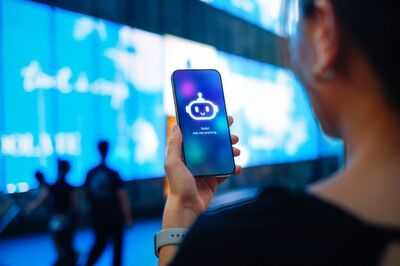Hardly a day goes by without further promises being made about the capabilities of Artificial Intelligence (AI), with the technology's potential fuelling fears among workers about whether their jobs will be secure in the long run.
Executives at AI companies like OpenAI's Sam Altman and Dario Amodei, chief executive of Anthropic, have issued dire warnings that their tech has the capability to "wipe out" a sizeable chunk of office jobs.
Major companies like Amazon, Microsoft, and Klarna are already cutting vast numbers of roles to instead focus on integrating the new technology into their workflow processes.
The jobs at the greatest risk are the ones that have a large portion of crossover with AI's capabilities, but there are still many roles out there - many of which are practical or include physical labour - that the technology has little to no way of replacing at this stage.
READ MORE: Warning over using AI to plan your finances as Brits turn to chatbots for help
READ MORE: Woman who 'stabbed husband to death as he slept' confessed her anger to AI chatbot

Microsoft has reportedly announced, per Sky News, that it intends to invest a whopping $69 billion into AI data centres, and intends to use the tech to save $500 million in running call centres.
Meanwhile, Klarna has got rid of 40 per cent of its workforce, investing instead in AI, and has claimed that the work of 700 employees can be undertaken by its chatbot.
The chief executive of Amazon said the company will likely "reduce our total corporate workforce as we get efficiency gains from using AI extensively".
However, it is important to remember that the predictions of huge savings for companies and the threat of mass job cuts often come from those who stand to gain financially from institutions and corporations using their technology, an expert told Sky.
The full list of the jobs predicted by Microsoft to be most under threat from AI is listed below. Is your role included?
It's important to remember that even the AI companies themselves admit there are limits to the accuracy of these predictions.
A study undertaken by OpenAI undertook "rigorous tests," putting a variety of jobs through their paces and comparing the results with their tech.
While they found their tech could keep up with many of the tasks people, from engineers to nurses, undertake on a daily basis, they admitted "most jobs are more than just a collection of tasks that can be written down."
The company also said the tech should be viewed as a way to "support people in the work they do every day," rather than replacing the need for human beings entirely.
You may also like

Women's tennis awaits its Sin-Caraz

Ronnie O'Sullivan makes huge Luke Littler prediction amid No.1 bid

Wearing popular Halloween costume may lead to imprisonment and unlimited fine

Aryna Sabalenka speaks out after nearly getting disqualified at Wuhan Open

Strictly Come Dancing fans call out BBC's 'awkward' decision






